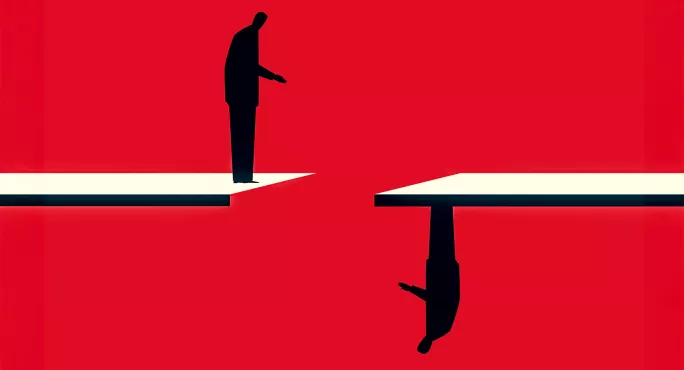- Home
- Teaching & Learning
- Secondary
- How school debating can have ‘life-changing’ impact
How school debating can have ‘life-changing’ impact

When I started teaching, I had no idea at all that competitive debating existed. However, early in my probation year, I was quickly asked by students to take over the school’s debating club. The teacher responsible had left and they needed someone to take over. I enthusiastically said yes, despite my lack of experience or knowledge.
Nine years later, I’m so glad I did: it’s been the most rewarding part of my career. I passionately believe that every school should have access to debating.
The club started out discussing politics and playing a few games to develop public speaking skills. We decided to enter some competitions, and our students really enjoyed them. I could immediately see the benefits of students researching, meeting new people and developing their confidence.
However, our students tended to lose debates initially, which was understandably discouraging for them. Most competitions use the ”British Parliamentary” format, which gives teams 15 minutes to prepare on a previously unseen topic, with no outside help or access to the internet.
Established schools with debating cultures dominated these competitions. Normally these were independent schools, but a few excellent state schools such as Craigmount High, Douglas Academy and Mearns Castle High were superb role models for us.
Overcoming a ‘demoralising’ start
It can be demoralising at first and many schools will do one or two competitions, then not return. This is why it’s so important to stress that debating isn’t about the results, subjective as they are.
The crucial aspect of debating is that it allows students to grow and challenge themselves. Debaters develop knowledge, critical-thinking skills and the confidence to express their opinions - three areas that the Scottish curriculum sadly undervalues.
- Student view: ‘I was the quietest pupil - now I’m the most outspoken’
- Primary: Why every primary school should teach debating
- Related: Is ‘token oracy’ damaging your pupils’ confidence?
Thanks to their perseverance, our students have had incredible experiences. They’ve been able to speak in Holyrood and Westminster, they’ve debated in Cambridge and Oxford, and some have even competed at the highest level at the World Schools Debating Championships (WSDC) in Vietnam and Serbia.
Debating can act as a rare tool for social mobility. In recent years we have sent undergraduate students to Durham and Cambridge - both firsts for our school. Debating offers access to these institutions and valuable networking opportunities.
Opening up the world
One of our students, Lena, won the world championships this summer with Scotland. This was an astounding achievement, but Lena says that “most importantly, it allowed me to meet people from across the entire world”, and “the skills gained from debating have assisted me with my schoolwork and exams”.
One of our former students, Emma, who led Scotland to a third-place finish last year at the WSDC says: “Debating allowed me to work on academic skills that are pivotal to university life.”
I could not be more positive in recommending that more schools get involved in debating across Scotland. It doesn’t require any experience or specialised knowledge; students get feedback after debates from experienced judges, and organisations like the Scottish Schools Debating Council, while Young Speakers Scotland (YSS) offer wonderful free training at a variety of levels.
The Law Society of Scotland Donald Dewar Memorial Tournament or YSS competitions are great places to get started.
There are challenges, mainly in terms of finance and time. However, many competitions are sympathetic to schools that would struggle with entry fees, and free bus passes for students help tremendously with travel costs.
The biggest obstacle is often the time commitment for teachers. Competitions in the evening and on weekends can be stumbling blocks. Having two or three staff working collaboratively can be key here, so it’s never too much for one person.
If schools can work all this out, the experiences can be life changing.
Robbie McDonald is a debating coach and acting principal teacher of business and social subjects at Broxburn Academy, in West Lothian
For the latest Scottish education news, analysis and features delivered directly to your inbox, sign up to Tes magazine’s The Week in Scotland newsletter
You need a Tes subscription to read this article
Subscribe now to read this article and get other subscriber-only content:
- Unlimited access to all Tes magazine content
- Exclusive subscriber-only stories
- Award-winning email newsletters
Already a subscriber? Log in
You need a subscription to read this article
Subscribe now to read this article and get other subscriber-only content, including:
- Unlimited access to all Tes magazine content
- Exclusive subscriber-only stories
- Award-winning email newsletters
topics in this article



